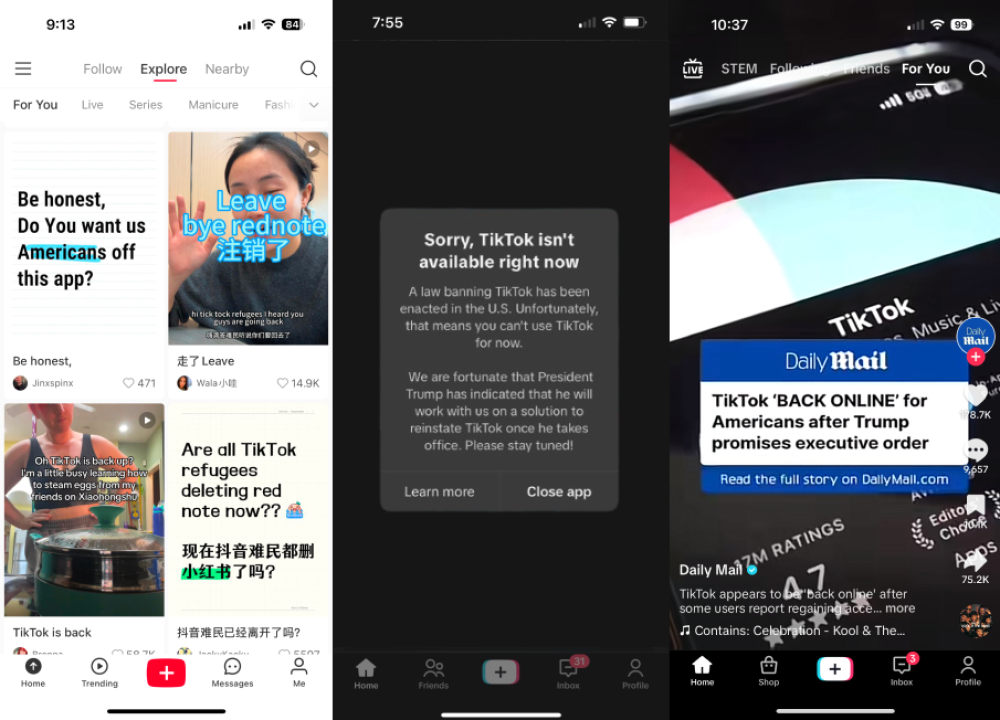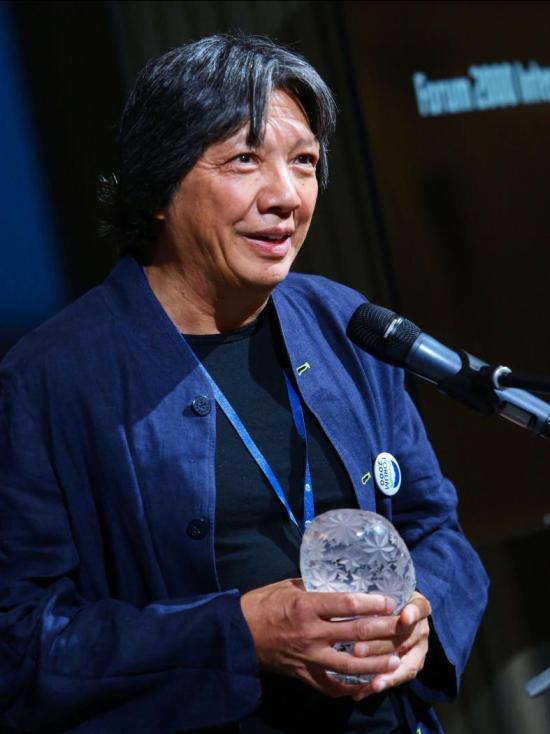This conversation was held on January 15. Since then, TikTok was temporarily shut down on January 19th before being reinstated a day later due to an executive order delaying enforcement of the ban for 75 days.
It’s not every day that an app makes front page headlines for facing the scrutiny of U.S. lawmakers, presidents, and Supreme Court judges. In a historic development, Chinese-owned social media platform TikTok has become the center of a bipartisan bill to ban the app nationwide in the name of national security. The bill, signed into law in April 2024, called for TikTok to find a U.S.-approved buyer within a year. As the date of the ban approached on January 19, however, TikTok users made a last-ditch effort to repeal the ban, citing free speech and censorship concerns.
Xiao Qiang, a research scientist at the UC Berkeley School of Information and a prominent scholar in the study of state censorship, propaganda, and disinformation in China, pointed to TikTok’s parent company ByteDance as the source of these national security fears. ByteDance, which is based in Beijing, is subject to Chinese internet laws and could be obligated to provide user data to the Chinese government.
“As long as these two countries maintain this geopolitical rivalry, this will continue to go towards a more divisive digital divide.”
— Xiao Qiang
“TikTok stands out because it’s owned by a Chinese company,” Xiao said. “There’s a number of Chinese tech companies that have used technology for compliance with the government for political repressive practice…ByteDance could be compelled to share data and manipulate content to serve the [Chinese Communist Party]’s interests by Chinese law.”
“By extension, TikTok always has to do so,” he added. “Is it doing it? We don’t know… This act is a preventative measure.”
Xiao also believes that banning TikTok would be a matter of reciprocity, a term used in international relations that states favors, benefits, and penalties to one country should be returned in kind. For decades, American social platforms such as Google, Facebook, and Twitter have been kept out by China’s firewall.
“In the tech industry, it’s been China against the U.S. companies for a long time,” Xiao stated. “From the Chinese government’s perspective, these U.S. companies cannot fulfill their complaints, so those companies have no access to the Chinese market. But TikTok will be the first Chinese company to have no access to the U.S. market if the law finally applies.”
On the other hand, many proponents of keeping TikTok alive argue that the app facilitates information exchange through news sources and spaces for discourse, and builds vibrant online communities that transcend international borders. A petition started by California representative Ro Khanna (D-17) to extend the deadline for the ban has garnered over 480,000 signatures in less than 24 hours.
“TikTok certainly played an important role in those information exchanges, but fundamentally, it’s not a free speech problem,” Xiao reiterated. “It’s undermining some of those information flows at this particular subspace, but that can be compensated over time by other apps.”
In protest against the ban, many TikTok users are now flocking over to another Chinese app: Xiaohongshu, also known as “Little Red Book” or “RedNote.” RedNote is considered to be China’s version of Instagram, where many Chinese influencers post tutorials, vlogs, and host livestreams. On the app, Americans are referring to themselves as “TikTok refugees” and posting content with both English and Chinese subtitles to appeal to both audiences.
“I think it’s kind of hilarious,” Xiao said. “It tells you how important TikTok is for those users…and it also tells you how Chinese companies’ innovation of those apps are very good. But it’s not going to be a lasting phenomenon. RedNote is not ready to accept so many U.S. users.”
“The reason is that they were never trying to market outside of China,” he added. “Whether you download from a Chinese IP or an overseas IP, you get the same app…But not TikTok. With TikTok, the U.S. users get a different server from the Chinese users. RedNote is emergency-hiring censors who know the English language because they need to sort through all this new uploaded content.”
Despite the chaos and debate surrounding this ban and the migration to RedNote, Xiao nevertheless emphasizes national security and data protection as a priority. “If you let a primary geopolitical opponent collect extensive data on user locations and biometrics, then you create this vulnerability for national security…Ultimately, this is a problem of trust in a political system,” he stated.
“The more powerful [their] technologies are, the more important it is that we resolve them on a policy level. As long as these two countries maintain this geopolitical rivalry, this will continue to go towards a more divisive digital divide. That’s the reality we have to face.”












